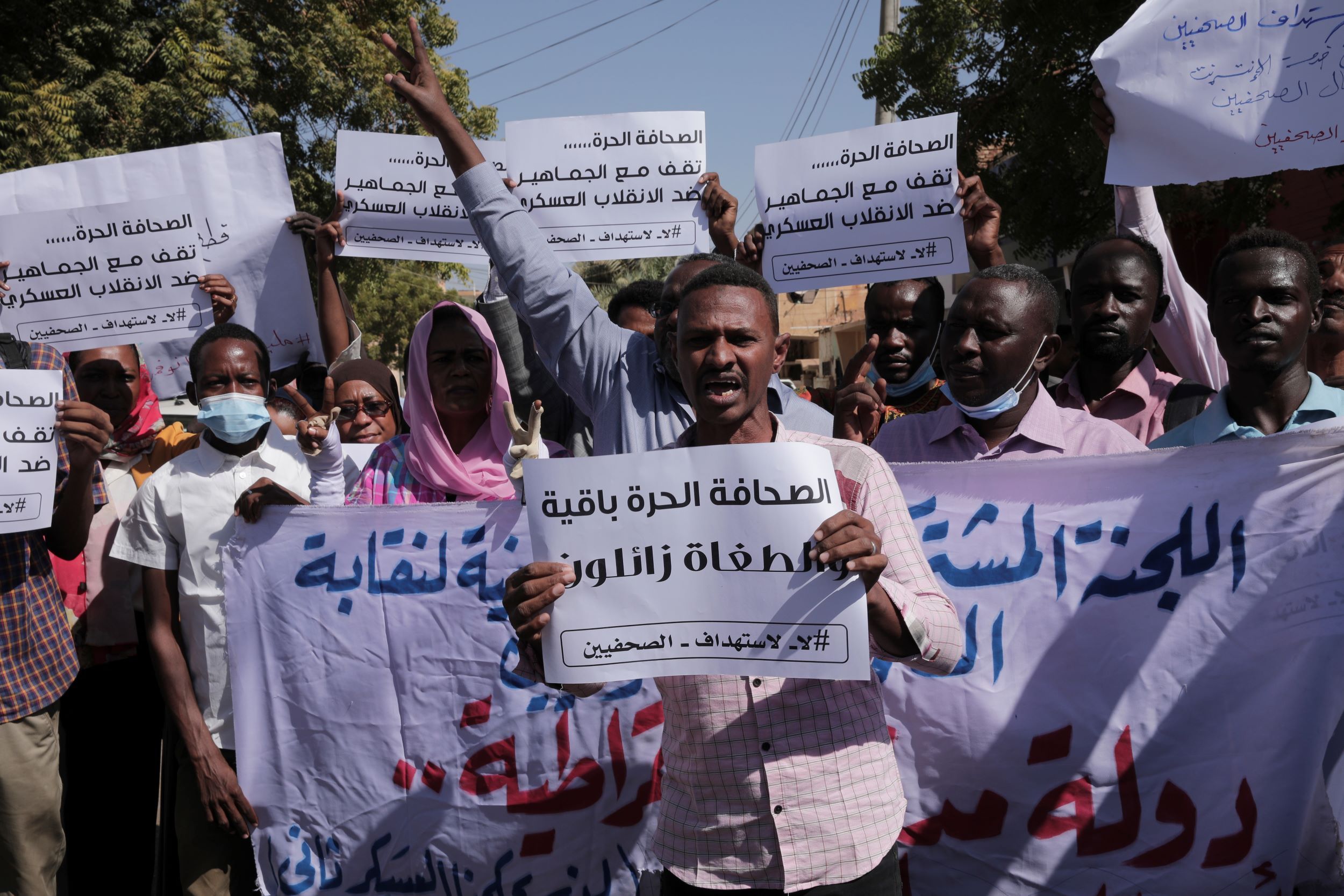Detained, beaten and their cameras smashed - Sudan’s journalists are enduring a renewed crackdown on the media
The fighting between the Sudanese Armed Forces (SAF) and paramilitaries from the Rapid Support Forces (RSF) had just begun on April 15. Employees of the state-owned Sudan TV had little idea about the severity of the conflict, however, until RSF fighters entered their building in Omdurman, which sits across the Nile from Khartoum.
Among those on the premises when the paramilitaries arrived was Amin*, a journalist who has worked at the channel for close to a decade. As the fighters marched towards the building, the reporter and his colleagues began to shiver. But Amin wasn’t fearing for his life. Rather he was worried about what the future held for the media in Sudan - and for his job.
“Their mission wasn’t to harm anybody but to take control of the media, so I didn’t immediately fear for my life,” says Amin, whose name has been changed to protect his identity. “But I was scared of what would later happen to everyone in the building if we were forced [by the paramilitaries] to broadcast something bad against the military government.”
As employees watched the paramilitaries disrupt transmission by stopping broadcasters from going on air, many of the journalists in the building were worried that if the attempted coup failed, the military junta "would arrest everyone for aiding an enemy”, says Amin.
“No one would care whether or not we were forced at gunpoint to allow the paramilitaries to have their way. All they would see is the fact that the RSF used the station for its propaganda.”
These sorts of concerns are part of everyday life for journalists in Sudan, a country where press freedom has for so long been nearly non-existent. Many media practitioners now have to be careful about how they act so they don't become the target of any of the forces at war. Journalists are at the crossroads - and frequently get caught in the crossfire.
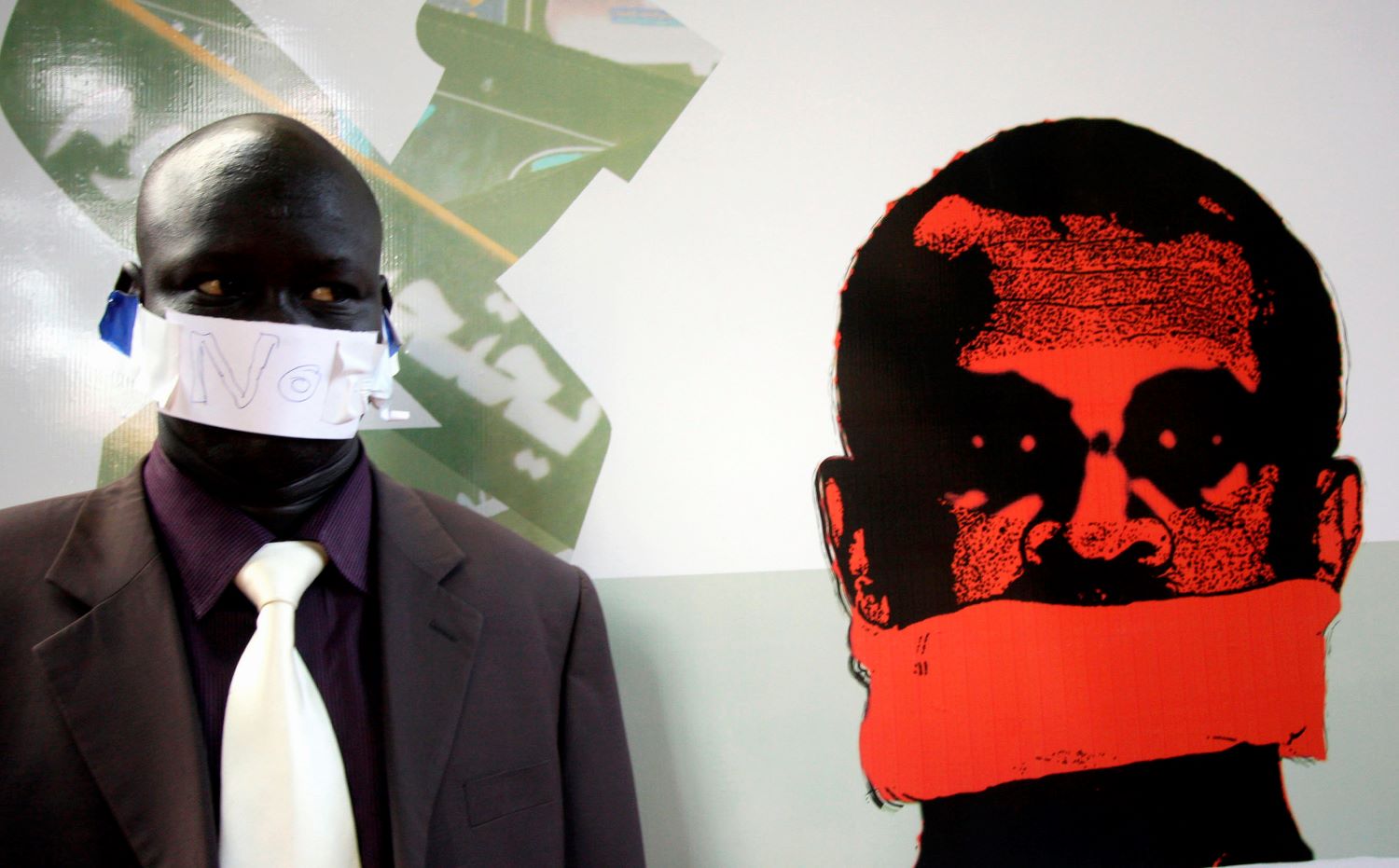
Ever since fighting broke between the SAF, headed by Sudan’s de facto ruler General Abdel Fattah al-Burhan, and the RSF, led by General Mohamed Hamdan Daglo (popularly known as ‘Hemedti’), the situation for media workers in the country has become more fraught. Journalists, especially those working for state-owned outlets, have lost their rights to express themselves freely and those who dare try to speak their minds are singled out either by the factions at war or their sympathisers.
While Amin and his colleagues at Sudan TV escaped being punished by the military which took control of the media outlet, many of them were warned never to speak to the international media about the ongoing conflict in the country.
"Military officers specifically told some of the journalists never to grant interviews to foreign media outlets or they'll be arrested," says Amin. "They (the military) have been attempting to silence the media since the war started."
‘Soldiers came to my house’
Just like Amin, Mazin*, a journalist in his mid-30s who works for the Sudan National Radio Corporation, says he was warned not to speak to any international news organisation after an interview he granted to a foreign outlet with his real name and job position was published in the early days of the war.
"Soldiers came to my house a day after the story that had my name in it was published and warned me never to speak to anyone about Sudan again," says Mazin, who only agreed to speak on the condition that his real name is not revealed for this article. "They have also warned the rest of my colleagues not to speak to the press as well."
The SAF, according to Mazin, claims journalists who speak to the international media about the war "give the wrong narrative" about the conflict in ways that makes the armed forces "look very bad" and incapable of defending the country. In fact, Sudanese journalists believe the government is more fearful that they will give the “right” narrative.
"I think the real reason they don't want us to grant interviews is that they fear we may expose war crimes and human rights abuses committed by soldiers," says Mazin. "It has nothing to do with us giving a ‘wrong impression’ about the military or anyone else."
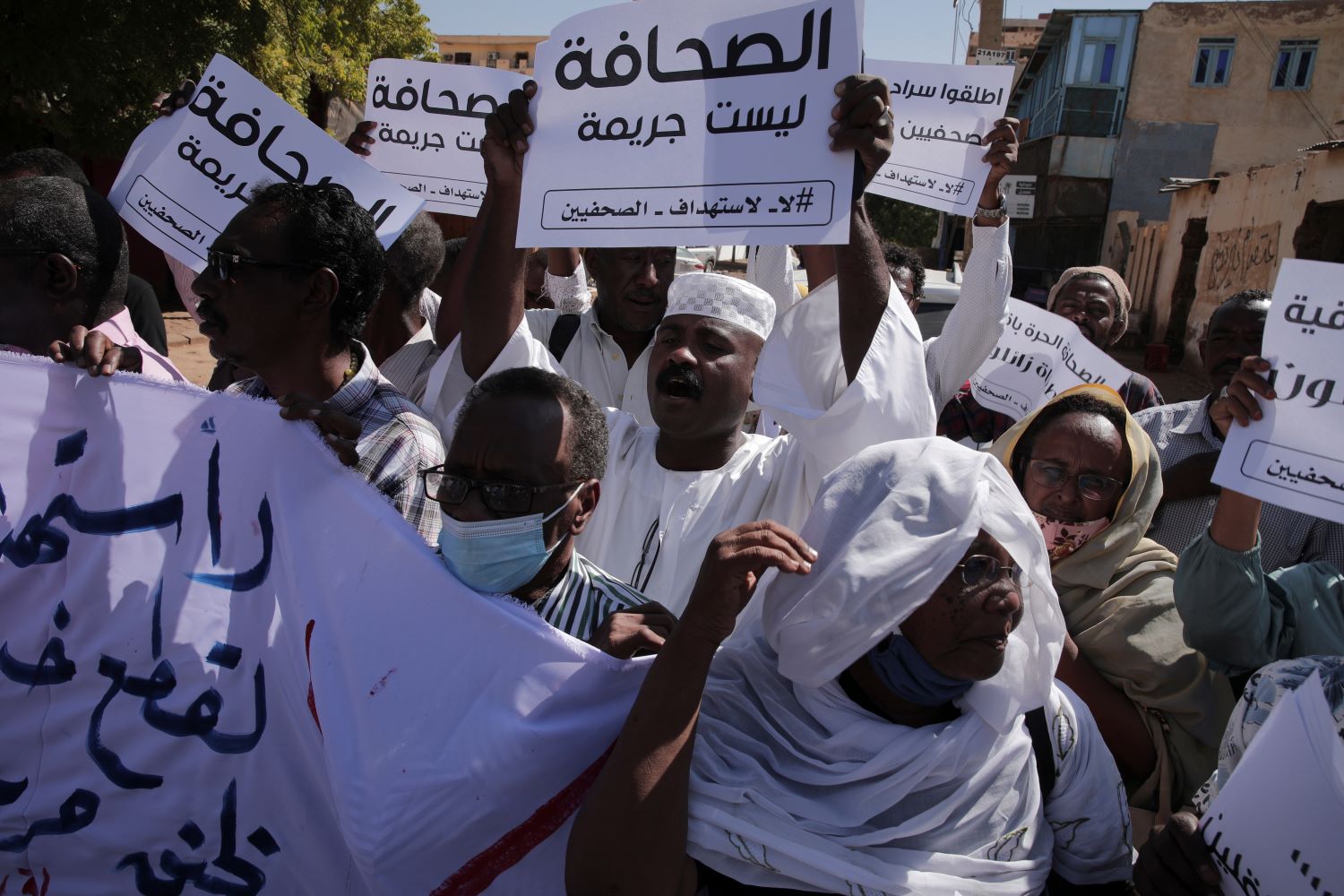
It is not just about how the conflict in Sudan appears in foreign press. Staff at Sudan's state-owned radio and TV networks have allegedly been told by the country's military junta not to report on the activities of the RSF except when there is negative news about the paramilitary group. Government-funded stations have become voices for the regime as the conflict deepens.
"If the RSF is making any advance, we can't report that because it would be seen as endorsing what they are doing," says Mazin. "Basically, all we do is report what the military wants us to report."
As the conflict entered its third week at the start of May, Reporters Without Borders, a Paris-based international non-governmental organisation which aims to safeguard the right to freedom of information, ranked Sudan 148th out of 180 countries in its annual World Press Freedom Index, and the worst nation in Africa for journalists. It's a position the country has become used to having been so poorly rated for many years.
You risk being arrested for undermining the authorities. That's what journalism looks like in Sudan
"The sector is deeply polarised," Reporters Without Borders said in the report that was published on May 3 to coincide with World Press Freedom Day. "Journalistic critics have been arrested, and the internet is regularly shut down in order to block the flow of information."
Sudan has a low internet penetration with only 30 percent of the country's 47 million people able to access the internet, meaning many have to depend on terrestrial radio and TV stations that are largely dominated by the government for news, with the state-owned broadcast stations required to operate as propaganda tools for the regime.
"If you don't act in the way that the government wants you to operate, you would not only be fired but you risk being arrested for undermining the authorities," says Mazin. "That's what journalism looks like in Sudan."
A long history of hostility
Journalists in the northeast African nation have never had an easy time of it, especially during the past three decades. Throughout the 30-year rule of Omar al-Bashir, who came to power in 1989 following a military coup that ousted the democratically elected government of Prime Minister Sadiq al-Mahdi, the country endured one of the most restrictive media environments in all of Africa. Journalists faced constant attacks during demonstrations and those who reported stories that were critical of the regime came under regular surveillance.
News organisations which criticised the government were shut down - such as the privately owned Omdurman channel in November 2016, a move which sparked protests. The government would also step in to prevent publication of news editions it did not like - such as in the case of the al-Tayar newspaper whose publication was halted for a day in February 2012.
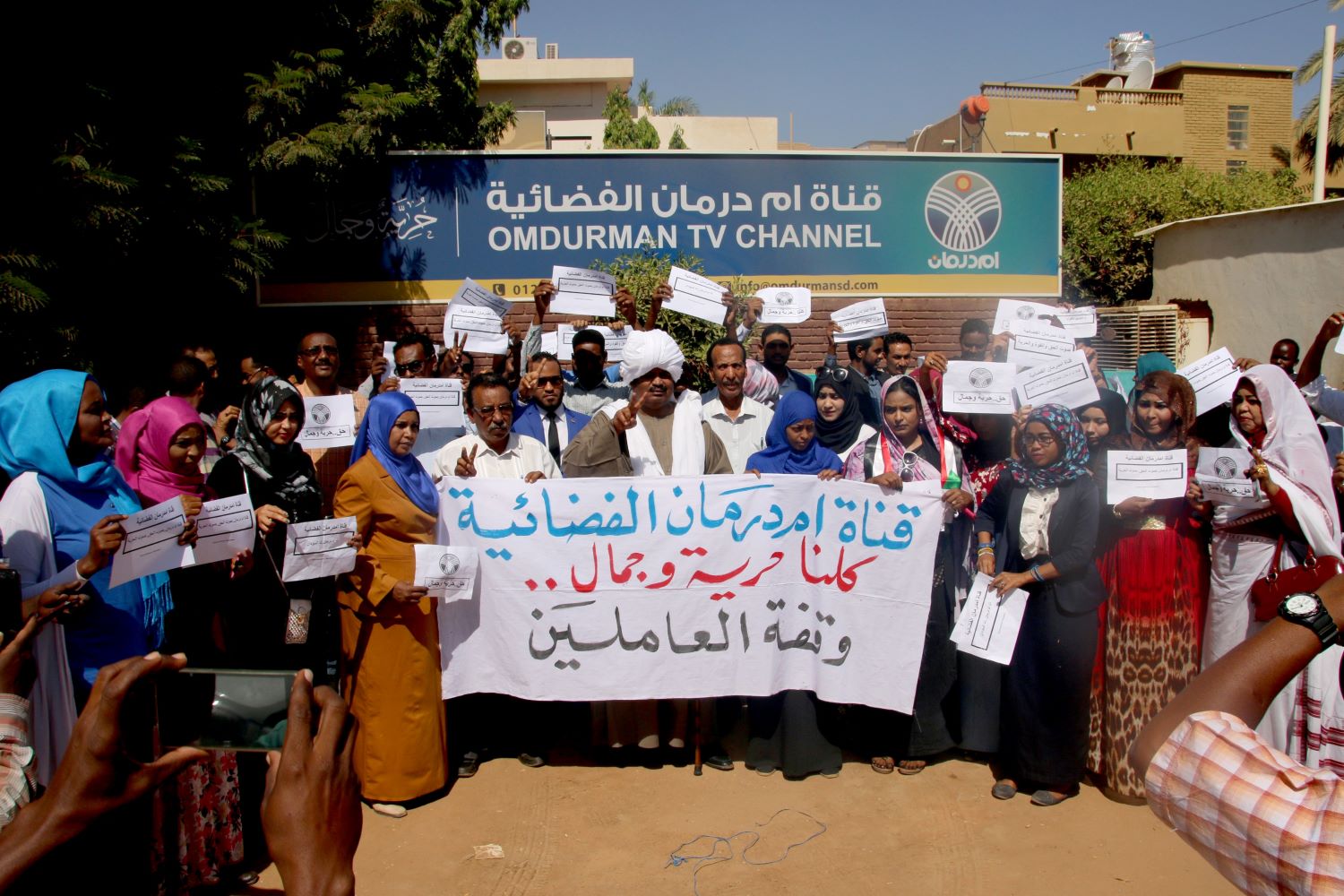
Women journalists had their private lives exposed by government officials who constantly monitored their chats on social media platforms for the purpose of intimidating, attacking and silencing them.
After al-Bashir was toppled by both the army and the RSF in 2019, the civilian-led transitional government that succeeded his regime was praised a year later by the United Nations for taking Sudan "one step forward" in terms of press freedom, as journalists, it said, were able to work "without interference or fear".
But this hope for the future of the media in Sudan was short lived.
Steps taken to ensure freedom of the press in Sudan were reversed when al-Burhan - then head of the army - seized control of the government in a coup backed by Hemedti, who would later become his deputy, in October 2021.
The new military regime, upon taking power, immediately targeted the media. In its first two weeks in power, the junta shut down at least 36 radio stations over their reporting on protests against the Sudanese government. Then came reports of arbitrary detentions, raids, assaults and harassment of journalists. Between October 2021 and March 2022, the Euro-Mediterranean Human Rights Monitor, a Geneva-based human rights group, noted 55 violations against the press.
The hell that journalists experienced under al-Bashir was brought back by the al-Burhan - Hemedti regime
Under the junta, the Ministry of Information only grants licences to news outlets deemed “friendly” to the ruling authorities. Meanwhile, the National Council for Press and Publication, which regulates the media in Sudan, has the power to shut down outlets that criticise the government, even without judicial orders.
"The hell that journalists experienced under al-Bashir was brought back by the al-Burhan - Hemedti regime," says Ahmed Abdallah, a Sudanese journalist and human rights campaigner now living in exile in Germany. "The current government in Sudan has no regard whatsoever for the media."
The country's current conflict, which started after al-Burhan and Hemedti fell out with each over a number of issues including the former's decision not to embed the RSF into the armed forces, has only added to the dangers reporters face working in Sudan, and the threats are coming from all angles.
Since mid-April this year, journalists have faced intimidation by warring forces on both sides of the unrest for reporting human rights violations or even for staying neutral.
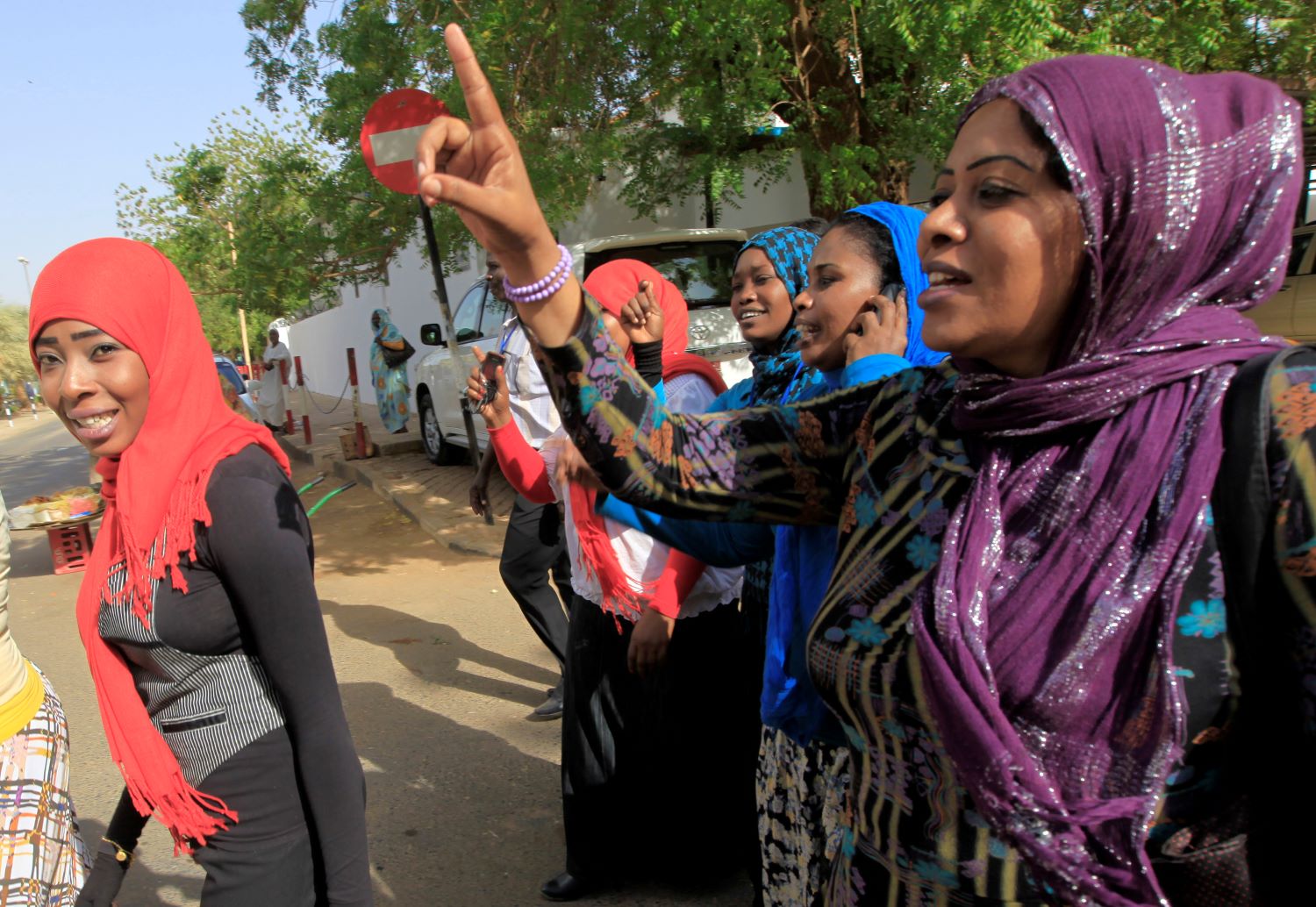
Jamal*, a journalist at a private radio station in Sudan, said he has a number of phone calls from anonymous callers who threaten his life for talking about the conflict even from a neutral perspective. The callers, he said, are individuals backing either factions in Sudan's conflict.
"I have never criticised or blamed anyone for the conflict, yet I get calls from people from both sides accusing me of supporting the other and threatening me with death," says Jamal, who didn't want his real name published for fear of further attacks. "Working as a journalist in Sudan at the moment is like building your own prison."
‘They said they will come for me next’
But even silence as a journalist can also be a problem. A Khartoum-based freelance journalist, who hasn't yet reported about the war for the foreign outlets he pitches to, said someone claiming to be a government official called him on the phone and accused him of working for the RSF simply because he hasn't publicly criticised the paramilitary group.
"He (the caller) was threatening to have me arrested if I ever write any story that is critical of the regime," the journalist who - like many Sudanese journalists facing threats in the country - prefers to remain anonymous to avoid compounding on the danger he already faces, explains.
"Regardless of what you do, as long as you are a journalist, your life isn't safe in Sudan."
Journalists are also finding their names on lists widely shared on social media, accusing them of working against their country and its armed forces. Some are also seeing their names appear on other lists circulating on WhatsApp, claiming that they are supporters of the RSF. One of those who saw his name appear on a list shared in a private WhatsApp group for Sudanese journalists says he now fears he could be killed.
“Seven journalists appeared on the list, but I was the only one still in Sudan,” Mohi el-deen Jibril, a 48-year-old veteran TV presenter who previously criticised the military for seizing power from the transitional government, told Al Jazeera recently. “I have since received threats from many people. Two [wrote to me on WhatsApp] and said that after the army kills the RSF, they will come for me next.”
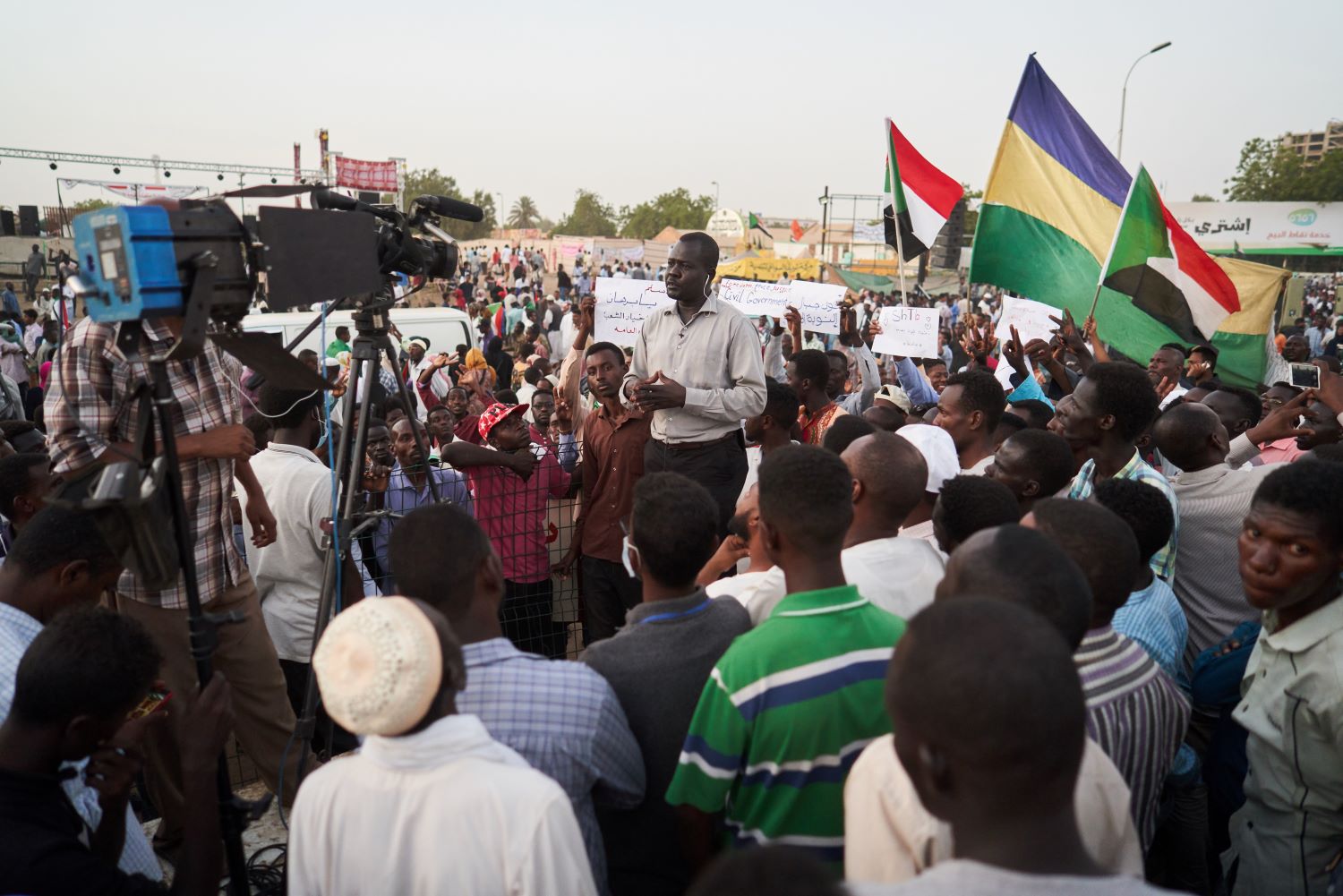
Journalists have also faced brutality and near death since the fighting began. In late April, Muhammad Othman, a correspondent at the BBC was attacked by Sudanese soldiers while on his way to his workplace at the heart of Khartoum, according to the Sudanese Journalists' Syndicate, an association established last year as Sudan's first independent union since 1989 when al-Bashir dissolved last independent guild for journalists.
In the same month, soldiers allegedly twice opened fire on the headquarters of Al-Jarida newspaper in Khartoum before going on to detain journalists working for Hala Radio 96, Tana Formedia Agency, Sudan News Agency, Radio Biladi, Russia Today and Al-Hurra channels at their offices for days.
"At Radio Biladi, for example, as many as seven people working there were locked in the building for almost six days," said Yaser Abdulrehman, a Sudanese human rights lawyer. "Many people even thought they had been killed."
‘They smashed my camera and beat me with sticks’
Attacks on the media have continued in the second month of war. According to a report by the Sudanese Journalists' Syndicate, on May 11 this year, the RSF raided the office of El Hirak El Siyasi, an independent newspaper in Khartoum, threatened staff and seized their belongings.
Around the same time, paramilitaries shot award-winning photojournalist Faiz Abubakr in the back while filming conflict on a street inside Khartoum. He was reportedly arrested, beaten and detained by RSF members who accused him of spying on the militia group on behalf of Military Intelligence.
Despite being ordered not to speak to foreign press about the conflict, many journalists are defiant
Similar treatment was meted out to Ibrahim Awad, a freelance journalist living in Khartoum, who says he was beaten up by soldiers while taking photographs relating to the conflict on the streets. His electronic gadgets were destroyed and he sustained injuries on his head as a result.
"One of the soldiers snatched my phone and camera and smashed them on the ground," says Awad. "Others then began to beat me up with sticks and their guns."
Even before the conflict began, government officials, security personnel and paramilitaries from the RSF who harass journalists, have enjoyed absolute impunity and are protected by those in power. Unfortunately, the country has no law that protects media practitioners. The current government still enforces laws used under the al-Bashir regime on journalists and media outlets who dare criticise the junta. One of such laws is the so-called National Security law of 2010 which criminalises the publishing of “false information” and materials that “threatens public peace” or “weakens state prestige”.
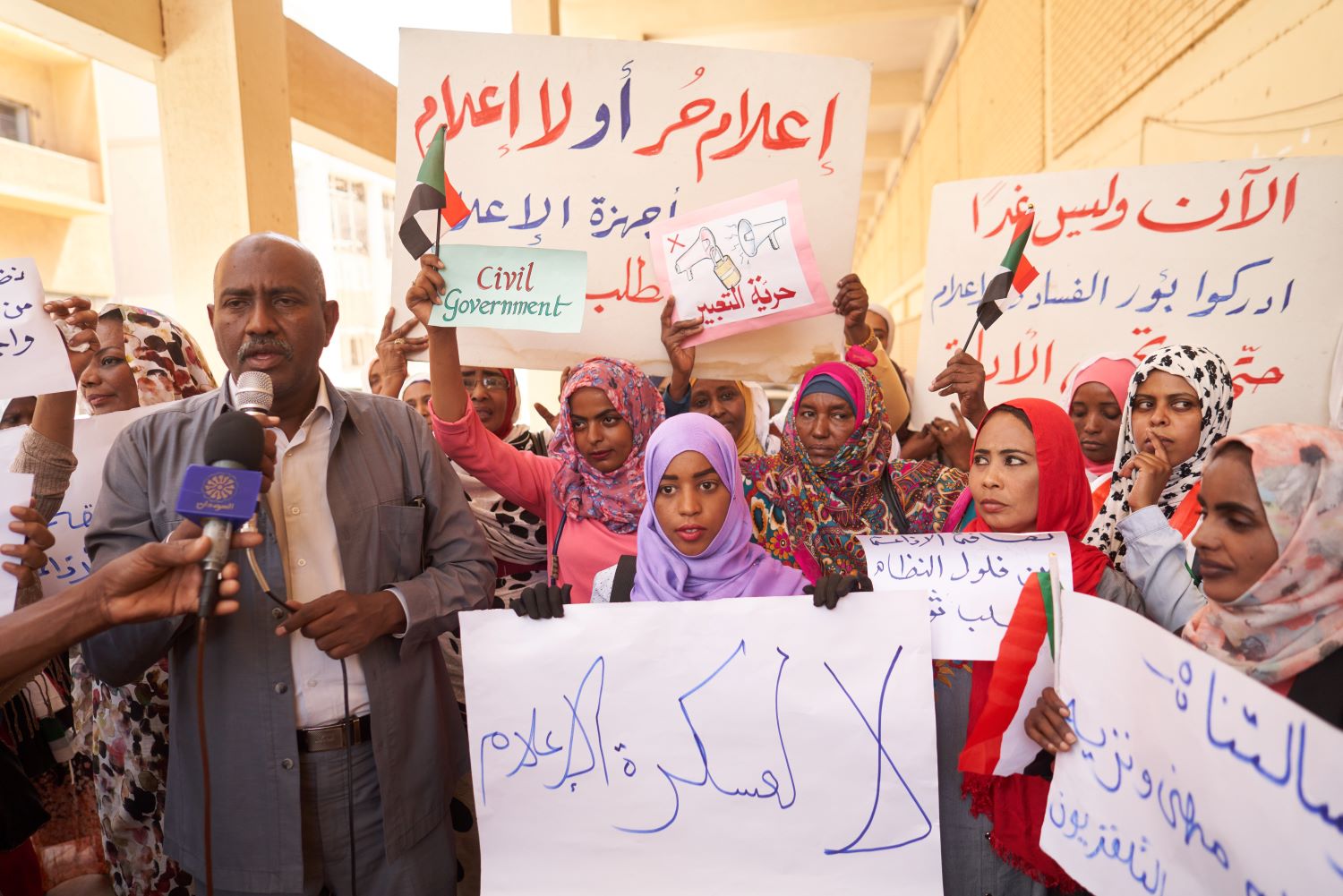
As attacks on media workers intensify, the war between two of Sudan's most powerful generals who are battling for power continues to wreak havoc across the impoverished nation. In West Darfur, ethnic militias have now become part of the war. Hundreds of civilians have been slaughtered since the fighting began and a humanitarian disaster was sparked after hundreds of thousands were forced to flee their homes. Yet, the truth about the effect this conflict is having on the country and its people cannot be told as journalists continue to be targeted by both sides.
"We enjoy our jobs and want to continue telling the stories of ordinary people, but we can't do that when our lives are in danger," says Awad. "Sudan is just not a place to practise true journalism."
Battling depression
For many in the media in Sudan, life as a journalist in the country, where freedom of speech is a luxury, has become catastrophic, and the challenges of working in the press under a military dictatorship and in a season of war can be overwhelming.
"Many journalists, including me, are now battling with depression because of the difficulty we face working in an unsafe environment," says Awad. "Mental health is a big issue in the media but journalists don't talk much about it because everyone is more concerned about how they earn money and cater for their families."
But in the face of intimidation and oppression, Sudanese journalists are finding ways to make their voices heard. Despite being ordered not to speak to foreign press about the conflict, many are defiant. Their stories, even when they've decided to remain anonymous, speak to their courage and determination to defend press freedom in their country.
"If we don't talk about the challenges that we are facing, it means we are never going to get help," says Amin, who continues to work at Sudan TV despite the fact that the station had previously been targeted by the RSF. "We want everyone to join their voices with ours to demand press freedom in Sudan."
*Some names have been changed to protect identities
